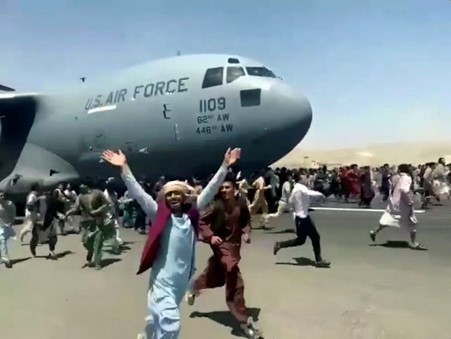Afghanistan’s turmoil is starkly evident three years after the Taliban’s return to power. This week marks the third anniversary of America’s retreat from Afghanistan and the Taliban’s subsequent takeover. The U.S. had initially intervened in Afghanistan as a direct response to the September 11, 2001, terror attacks orchestrated by al-Qaeda. The objective was clear: combat international terrorism and create a new global order to enhance safety and security worldwide.
However, as highlighted by Amin Saikal in his new book, “How to Lose a War: The Story of America’s Intervention in Afghanistan,” the world today is arguably more conflict-ridden and polarized than it was during the Cold War. The potential for a new global conflict looms large. As Taliban authorities mark this somber anniversary in Kandahar, the reality of Afghanistan’s turmoil becomes even more apparent.
The U.S. entered Afghanistan with several key goals:
- Eliminate al-Qaeda.
- Dismantle the Taliban’s ultra-extremist regime that sheltered al-Qaeda.
- Ensure Afghanistan would never again become a breeding ground for international terrorism.
These objectives were intertwined with broader U.S. foreign policy aims under President George W. Bush. These included the global war on terrorism and promoting democracy. Both were seen as means to bring change to the Middle East and the wider world, aligning with U.S. interests as the sole superpower post-Cold War. Yet, the U.S. ultimately failed to achieve these goals.
Initially, the U.S. succeeded militarily by toppling the Taliban and scattering al-Qaeda. This was done with help from anti-Taliban Afghan forces. But the leaders of both groups, Mullah Mohammad Omar and Osama bin Laden, managed to escape to Pakistan. The Taliban quickly regrouped, and with support from Pakistan and continued ties with al-Qaeda, they launched an insurgency that far exceeded U.S. expectations. This insurgency also overwhelmed the fledgling Afghan government in Kabul.
The U.S. did not plan to remain in Afghanistan for more than a few years. However, the failure to capture key al-Qaeda figures early on led to a prolonged hunt for bin Laden that lasted a decade. This extended America’s involvement in Afghanistan, forcing it into the challenging task of nation-building in a deeply divided and traditional society.
Without securing Afghanistan’s stability, the Bush administration shifted focus to Iraq in 2003. This decision was based on false premises, including alleged ties between Saddam Hussein and bin Laden, and the supposed existence of weapons of mass destruction. Iraq was prioritized over Afghanistan, leading to a shift of vital intelligence and military assets.
Lacking a clear strategy for peace in either Afghanistan or Iraq, the U.S. found itself mired in two unwinnable wars. This left little choice but to withdraw from Iraq by 2011 and from Afghanistan by August 2021, without fulfilling its original objectives. Both countries were left in ruins. Iraq continues to struggle, and Afghanistan remains in chaos under the Taliban.
The defeat in Afghanistan is as humiliating for the U.S. as the Vietnam War was five decades earlier. Afghanistan’s turmoil is compounded by the Taliban’s extremist rule, which has proven to be as oppressive and discriminatory as their previous regime from 1996-2001. The Taliban enforce a distorted version of Islam, not practiced anywhere else in the Muslim world. Women are denied basic rights, including education and work. Any form of opposition is brutally crushed, and minorities, along with those associated with the former U.S.-backed government, face daily persecution, with many being murdered.
Afghanistan has become a haven for al-Qaeda and other like-minded groups, including the Pakistani Taliban (TTP) and the Islamic State–Khorasan Province (ISKP). A recent survey by the UN Mission in Afghanistan reveals that only 4% of respondents believe the Taliban should be recognized internationally. The group’s lack of domestic legitimacy is mirrored by its pariah status globally. Despite this, the Taliban have consolidated power in Afghanistan, exploiting regional and global geopolitical rivalries.
The resurgence of the Taliban has emboldened extremist groups like TTP and ISKP across the Muslim world. The U.S. defeat in Afghanistan has also boosted the morale of America’s main adversaries – Iran, Russia, China, and North Korea. Meanwhile, Washington’s unwavering commitment to Israel’s security, coupled with its failure to resolve the Gaza conflict, has further inflamed radical forces in the Muslim world and strengthened America’s enemies.
Tensions between Israel and Iran, along with Tehran’s allies, particularly Hezbollah in Lebanon, have escalated, jeopardizing stability and security in the already volatile Middle East. The potential for an Israel-Iran war looms, which could draw in the U.S. to defend Israel, with Russia and China likely backing Iran. This is a scenario that neither the Middle East nor the world can afford to ignore. Afghanistan’s turmoil is just one piece of this dangerous global puzzle.


